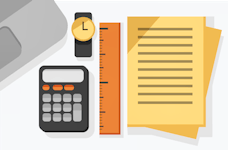IBEW Aptitude Test: Practice Questions & Tips
All products and services featured are independently selected by WikiJob. When you register or purchase through links on this page, we may earn a commission.
In 2020, over 80,000 people passed the graduate scheme to become an electrician, or get into an electrical apprenticeship program, in the United States, making it a hugely popular career choice.
An electrician typically always has work, and the role can pay well, with the average wage stated as $57,000 a year.
Like any worthwhile job, there is an application process, which means studying and testing.
Electricians commonly start as apprentices, learning on the job and gaining qualifications whilst getting paid.
Before landing an apprenticeship position, the recruit needs to be over 18 years old, have a high school diploma (or equivalent), and most significantly, take the International Brotherhood of Electrical Workers (IBEW) Electrical Aptitude Test.
This article will look at what the IBEW aptitude test is, what is involved, some test questions and how best to prepare for it.
Why Do We Need the IBEW Test?
This aptitude test is for the IBEW, the main board for electricians, to assess which applicants have the best numerical and alpha skills to succeed in the apprenticeship scheme.
How Does the IBEW Aptitude Test Process Work?
If someone qualifies for the apprentice scheme, they will be invited to a local venue to take the IBEW test.
The test consists of two sections:
- Algebra and Functions (46 minutes long – 33 questions)
- Reading Comprehension (51 minutes – 36 questions)
There is a short break between the mathematics section and the comprehension part, so set aside two and a half hours for the test.
Take an IBEW Aptitude Test with JobTestPrep
Scoring in the Electrician IBEW Aptitude Test
Most people receive their results between a fortnight and a month after the test.
There is a minimum pass score a candidate needs to achieve in order to be invited to an interview with a member of the IBEW and the National Electrical Contractors Association (NECA).
However, the higher the score the better, as merely reaching the qualifying score doesn’t mean instant entry to the apprenticeship scheme.
The interview will be scored and the combination of this score and the IBEW test results will decide where to rank the application.
If there is a high volume of people taking the IBEW test but only a limited number of spaces on the apprenticeship scheme, then only the higher scores will be accepted.
Practice IBEW Aptitude Test with JobTestPrep

IBEW Aptitude Practice Test Questions
Algebra and Functions
An electrician will need to solve issues on a daily basis, using math skills and problem-solving. They will also need to use measurements and technical skills.
This is why the IBEW test includes the Algebra and Functions section, which measures the candidate’s skills in solving problems through algebra and other basic math skills.
Most people taking this test will typically be interested in these skills and have a sound understanding of them, so the questions shouldn’t be too surprising or overwhelming for them.
There are 33 questions in this section, with most of them focused on algebra and quadratic equations. There are also some questions on shape sequencing and measuring.
If you need to prepare for a number of different employment tests and want to outsmart the competition, choose a Premium Membership from JobTestPrep.
You will get access to three PrepPacks of your choice, from a database that covers all the major test providers and employers and tailored profession packs.
1. If B equals 10 and C equals 2, what is the value of A if the sum is A + C = B?
a) 8
b) 10
c) 9
d) 6
2. What is the next number in the sequence?
60, 30, 15, ...
Reading Comprehension
The reading comprehension section looks at the candidate’s skills in communication, reading and retaining information.
An electrician needs to understand and follow instructions and manuals that they may have never seen before, so this is a good indicator of how well they would perform in the role.
In this section, the applicant reads a passage and answers questions about the contents, interprets the text’s structure and tone, and reaches conclusions to move forward.
A nursery has taken on four new children in the first week of August, bringing the total number of children to 54. Three of the children will be in the under-ones room, and the last child will be in the preschool room for over three-year-olds.
a) How many children attended the nursery in July?
b) How many of the August intake will be in the toddler room?
How Can I Prepare for the IBEW Test in 2025?
There is no need to be worried about the test. Bear in mind that if you are applying for the electrician apprenticeship, you have existing skills in some areas of the test.
With some practice and fine-tuning, you should be able to get a good score.
There are a few tried and practiced ways to prepare for the IBEW test that will help lead to success:
Step 1. Create Study Guide
The best way to begin practice for the real test is to create create a study guide for each section, whether that is for the number series in the math section or the reading comprehension test.
Step 2. Practice the Questions and Format
There are many sample questions online. It is advised to read and answer as many of these as possible to get a good idea of all types of questions that could appear.
Start practicing free IBEW practice tests to prepare for the actual test will help avoid wrong answers and practice questions will provide correct answers.
Step 3. Read All Questions First
Read all the questions before answering the first one, so that you can estimate how long to spend on each question.
Step 4. Assess Strengths and Weaknesses
By reviewing questions and taking some practice tests, you will see areas that may need more revision than others. It will also show the areas of math that will be included. You can then focus on these during revision.
Step 5. Spend the Break Time Wisely
There is a reason for the break between the numerical section and the reading comprehension. Take the time to relax and regroup ready for the next section.
Step 6. Mentally and Physically Prepare
Make sure you prepare for the test by having a good sleep the night before and eating well.
Prepare for IBEW Aptitude Test with JobTestPrep
Eligibility requirements can vary by location, but in general, you may need to meet the following criteria:
- Be at least 18 years old.
- Have a high school diploma or equivalent (GED).
- Provide proof of completing high school-level algebra and geometry courses or equivalent.
- Possess a valid driver's license.
- Be physically able to perform the work of an electrician.
The passing score for the IBEW aptitude test can vary by location and year, so it's essential to check with your local IBEW or JATC office for the most up-to-date information on passing scores.
If you do not pass the IBEW aptitude test on your first attempt, you may be able to retake it. However, the rules regarding retakes can vary by location, so consult your local IBEW or JATC for their policy.
The difficulty of the IBEW aptitude test can vary from person to person. It typically consists of math and reading comprehension questions, and many find it manageable with proper preparation.
To prepare for the IBEW aptitude test, consider the following tips:
- Review basic math concepts, including algebra and geometry. Brush up on skills such as fractions, percentages, ratios, and basic equations.
- Work on your reading comprehension by reading a variety of materials, including technical documents and written instructions.
- Practice with sample aptitude tests or study guides that are specifically designed for the IBEW test. These materials can help you become familiar with the test format and types of questions.
- Consider taking a pre-apprenticeship or trade school course that includes preparation for the IBEW aptitude test.
Final Thoughts
The apprenticeship scheme for electricians is sought after and competition is tough.
It is strongly recommended to prepare as much as possible for the IBEW aptitude tests as the higher your score, the more chance you have of gaining a place on the scheme.
The test does not need to be stressful. By following the advice in this article and preparing fully, you can enter the tests with confidence.







